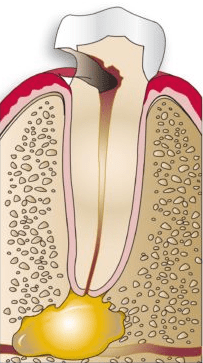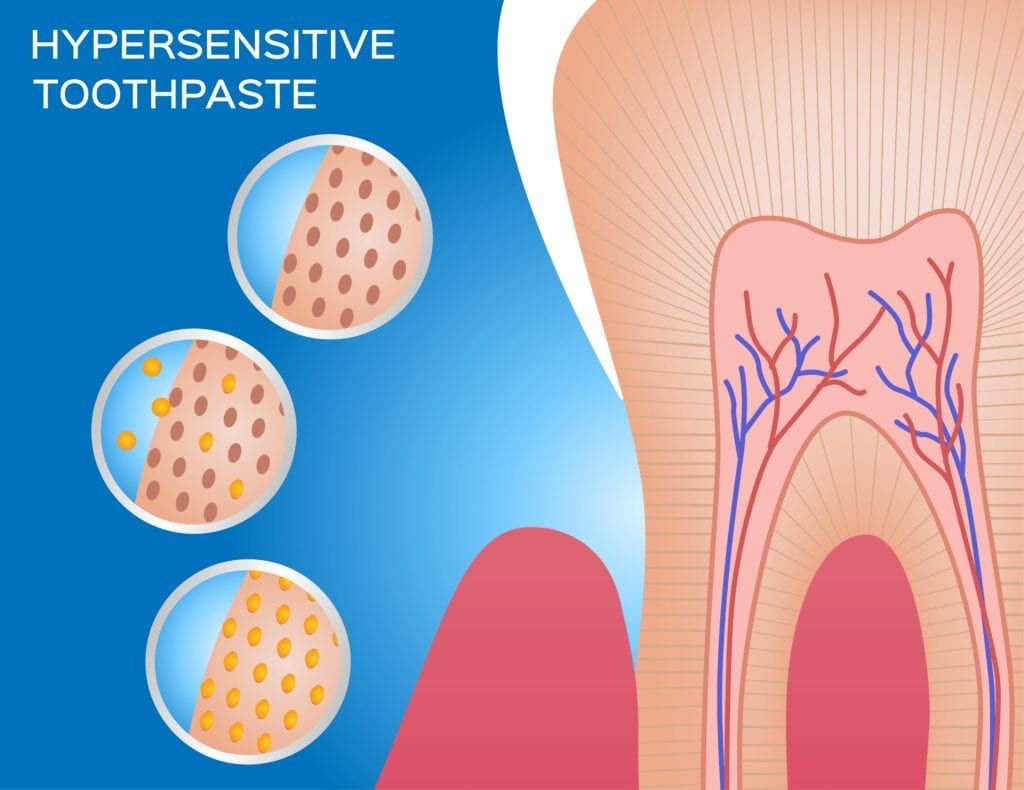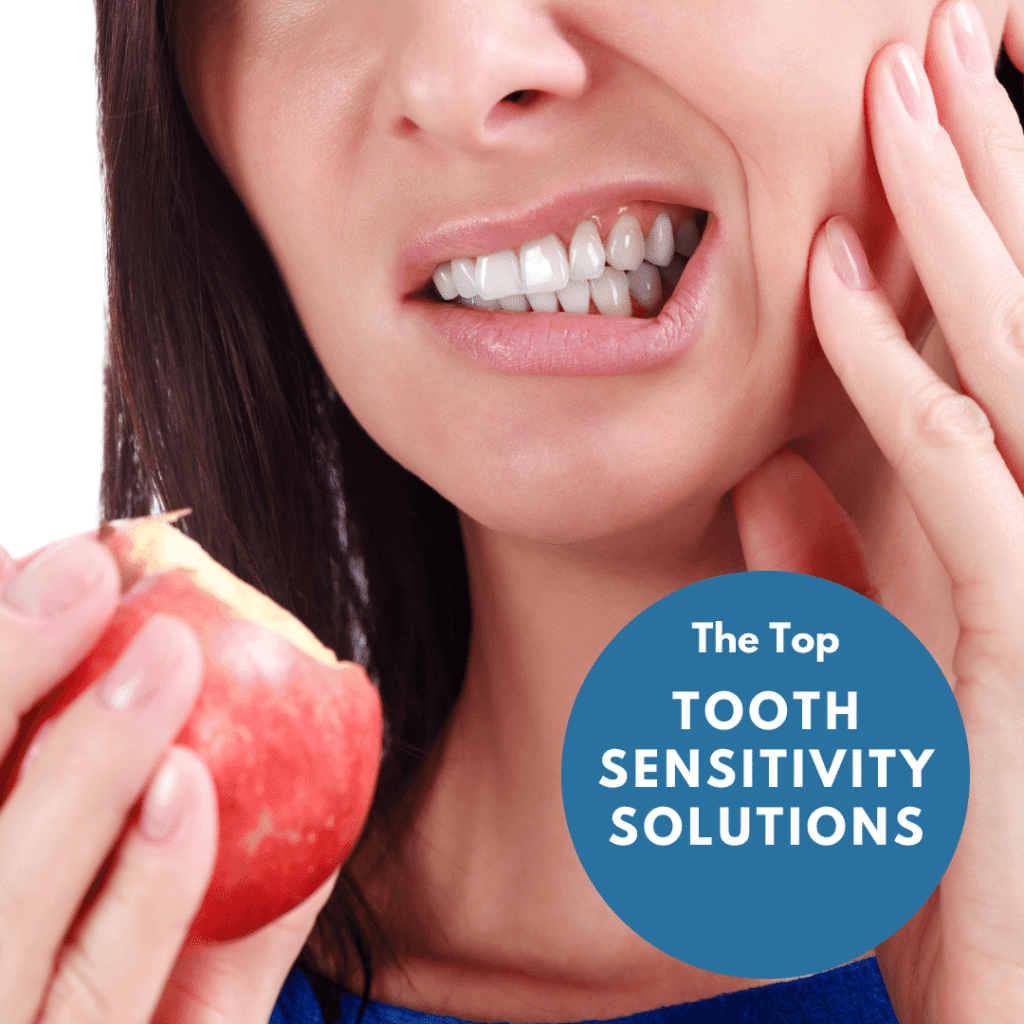Do you find yourself avoiding certain foods and beverages because they make your teeth hurt? If so, then you may be affected by tooth sensitivity. Tooth sensitivity is a sudden, temporary toothache that is brought about by hot, cold, sticky, sweet, or acidic foods and beverages. Many people describe this toothache as a deep, dull throbbing deep in their jaw. It generally starts once the tooth has been exposed, then stops almost immediately once the source has been removed.

Tooth sensitivity is a common dental problem that affects approximately 40 million Americans. It occurs when external stimuli are able to reach the nerve inside the tooth. Your teeth are made up of layers, with the enamel being the strongest and most dense layer. Directly underneath the enamel is the dentin layer, which contains microscopic canals leading to the innermost layer of the tooth known as the pulp. When stimuli are able to get through the enamel, they can travel through the canals in the dentin layer to reach the tooth nerve that resides in the pulp.
Since the enamel is the strongest substance in the human body, stimuli are only able to get through the enamel when it is compromised in some way. For example, if tooth decay has eroded part of the enamel, then stimuli are able to pass through the weakened enamel. In these cases, tooth sensitivity is actually a symptom of a larger problem. However stimuli can also pass through the enamel when a tooth is fractured, an old filling is leaking, the enamel is significantly worn, or the gums have receded to expose the tooth roots. Because there is a range of things that can lead to tooth sensitivity, the best thing to do is see your dentist about your sensitivity.
Depending on what is causing your tooth sensitivity, your dentist may recommend one or more of the top tooth sensitivity solutions:
Fluoride Treatments
In cases where your enamel is worn or just naturally thin, your dentist may recommend fluoride treatments. During a fluoride treatment, your dentist applies a layer of fluoride to the surface of your teeth. Fluoride helps strengthen the tooth enamel, making it more resilient to the acids found in foods and produced by bacteria. Not only does this help manage tooth sensitivity, but it will also decrease the risk of tooth decay.
Desensitizing Toothpaste

Desensitizing toothpaste is a specialized type of over the counter toothpaste that is beneficial for individuals with tooth sensitivity. It contains ingredients like stannous fluoride and potassium nitrate, which are used to strengthen the enamel while blocking the canals in the dentin layer to prevent stimuli from reaching the tooth nerve. Desensitizing toothpastes also do not contain ingredients that can irritate sensitive teeth and gums, such as sodium lauryl sulfate (SLS).
Dental Restorations
When the cause of your tooth sensitivity is tooth decay, your dentist will need to remove the decayed tissue and restore the tooth in order to alleviate the sensitivity. Dental fillings are generally used to fill in cavities, however inlays and onlays may also be used to fill larger cavities on the chewing surfaces of the molars. In cases where your enamel is worn down or naturally thin, your dentist may recommend other restorations, like veneers or crowns. Both veneers and crowns can decrease tooth sensitivity by acting as a shield between the tooth and external stimuli.
Gum Graft
If you have tooth sensitivity due to exposed tooth roots, then your dentist may recommend a gum graft. During a gum graft, tissue taken from the roof of your mouth is grafted to the gums. As the graft heals, new gum tissue will grow and cover the tooth roots. Covering the tooth roots decreases tooth sensitivity since tooth roots only contain a thin layer of enamel and are highly susceptible to sensitivity when exposed.


